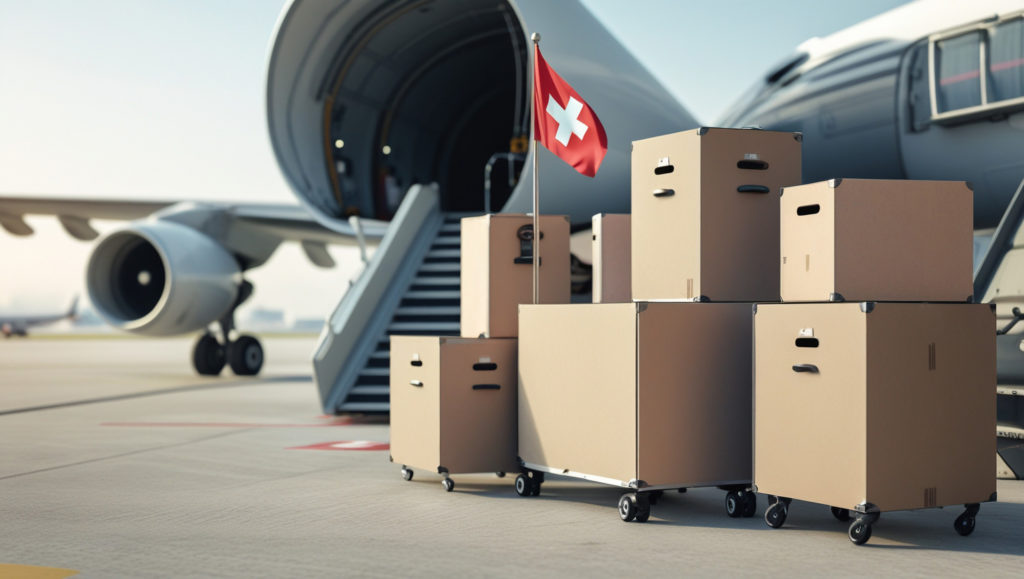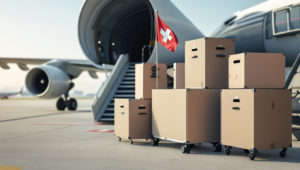An international move often represents a major logistical challenge and requires careful preparation. Whether relocating for professional or personal reasons, anticipating common mistakes can help you avoid costly and stressful complications. This article highlights the key mistakes to avoid for a smooth and successful international move, especially when Switzerland is your destination or departure country.
Underestimating Administrative Procedures
Administrative formalities are a crucial part of a successful international move, particularly to a country like Switzerland, known for its strict administrative processes.
Personal Documents and Visas (Swiss Specificities)
A common mistake is neglecting essential administrative documents, such as visas, residence permits (Permits B, C, L, or G), and work permits, all required to legally settle in Switzerland.
The country enforces strict immigration rules based on your nationality (EU/EFTA or non-EU/EFTA), the length of stay, and the purpose (work, study, family reunification).
For non-EU citizens, a national D visa may be required for stays longer than 90 days, while EU/EFTA citizens mainly need to focus on obtaining the appropriate residence permit.
Start these procedures several months in advance by contacting the relevant Swiss embassy or consulate in your home country, or directly the Swiss canton where you intend to settle, in order to comply with legal deadlines and avoid refusals or administrative delays.

Customs Formalities Specific to Switzerland
Customs formalities are especially important in Switzerland, a country that is not a member of the European Union. A complete and accurate declaration of transported goods is mandatory. Upon entering Swiss territory, you must provide the customs authorities with:
- A detailed inventory (in German, French, or Italian) clearly stating the nature, value, and age of each item.
- The specific Swiss form 18.44 (duty-free import of household effects), which allows you to import your personal belongings tax-free, provided you have owned them for at least 6 months prior to your entry into Switzerland.
- Your Swiss residence permit (or, failing that, an official certificate confirming your relocation to Switzerland).
Failure to comply with these formalities may result in significant delays, high additional customs fees, or even the temporary seizure of the goods in question.
Choosing an Inadequate Moving Service Provider
Selecting a reliable and experienced international moving company is essential.
Prioritizing Price Over Quality
Choosing the cheapest provider is a common mistake. A very low price often hides a lack of essential services: insufficient insurance, inadequate packing materials, or missed deadlines. Always compare the quality-to-price ratio in detail.
Overlooking the Provider’s Experience
A mover without international experience may not be familiar with the specific regulations and logistics involved in international relocations. It’s crucial to choose a professional with proven international expertise and verifiable references.
Incorrectly Assessing the Volume and Nature of Your Belongings
Poor evaluation of your belongings can lead to unexpected costs or losses.
Volume Estimation Errors
Underestimating or overestimating the volume of your goods results in unnecessary additional charges. Have a detailed inventory conducted by a professional, including furniture, boxes, appliances, vehicles, or any special items.
Ignoring Import Restrictions in Switzerland
Switzerland has strict import regulations for certain items: specific food products (meat, dairy), large quantities of medication, protected plants, or certain pets. Be sure to check these restrictions in advance with the Swiss Federal Customs Administration to avoid delays or confiscation.
Neglecting Moving Insurance
Insurance is often underestimated but is crucial for an international move.
Not Purchasing Full Insurance
International transport involves higher risks (loss, theft, damage). Purchasing full insurance that covers the total value of your belongings—based on a precise value declaration—is essential for optimal protection.
Poorly Organizing the Moving Schedule
Timing is a key factor in the success of an international move.
Ignoring Transit Times
International freight (air or sea) is subject to variable transit times depending on the destination. Planning ahead and allowing for potential delays will ensure a smoother transition.
Overlooking Peak Seasons and Holidays
Certain times of the year (summer, school holidays) lead to increased demand, resulting in higher costs and longer wait times. Whenever possible, schedule your move outside of these peak periods.
Forgetting the Administrative Procedures Upon Arrival in Switzerland
Your arrival in Switzerland requires careful anticipation of local procedures:
Neglecting Local Registration
Registration with your Swiss municipality is mandatory within 14 days of arrival. You’ll also need to enroll in the mandatory health insurance scheme and consider opening a Swiss bank account.
Ignoring Cultural and Language Differences
A common mistake is to underestimate cultural and linguistic differences, especially regional variations (German, French, Italian). Familiarizing yourself in advance with the language and local customs will greatly ease your integration.
Key Mistakes to Avoid When Moving Internationally to Switzerland
| Common Mistakes | Potential Consequences |
|---|---|
| Underestimating administrative procedures | Swiss customs delays, fines, and hold-ups |
| Choosing an unqualified moving company | Damaged belongings, unexpected extra costs |
| Incorrect volume estimation | Additional fees, logistical problems |
| Ignoring Swiss customs restrictions | Goods blocked or seized, additional charges |
| Failing to purchase insurance | Significant financial loss in case of damage |
| Poorly planning the moving schedule | Delays, added expenses |
| Forgetting local settlement procedures | Administrative difficulties, integration issues |
Successfully managing an international move— especially to Switzerland— requires careful planning and thorough anticipation of the country’s specific administrative, customs, and practical procedures. By avoiding common mistakes, you’ll approach your move with peace of mind, ease your transition, and ensure a smooth and comfortable start to your new life in Switzerland !









